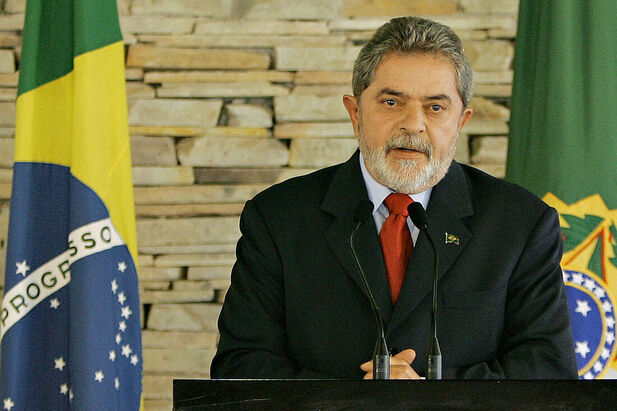|
On March 8, 2021, the Supreme Federal Tribunal (STF) - Brazil’s highest court - struck down all the criminal convictions against Brazil’s former president Luiz Inácio Lula da Silva. Monumental in its impact, this decision finally brought an end to a ruthless lawfare campaign against Lula. LawfareLula was imprisoned in April 2018 at the Federal Police headquarters in Curitiba as part of Operation Car Wash for alleged corruption. From the beginning, it was evident that Lula’s imprisonment was part of lawfare - the use of law for political motives. The Supreme Court ruled, on April 5, 2018 - after a threat from Brazilian Gen. Eduardo Villas Bôas - that defendants could be jailed even before their appeals had been exhausted. This regressive judgment allowed Judge Sérgio Moro to arrest Lula at a time when he was leading in all polls. In August 2018, the polls registered that 29% of the nation preferred Lula’s Worker’s Party (PT), while the political parties that were spearheading the anti-PT campaign were rapidly declining in terms of electoral strength. The presence of political bias in Lula’s imprisonment was confirmed when a range of materials and private conversations released by “The Intercept” proved that judge Moro discussed the case with the lead prosecutor Deltan Dallagnol, to whom Moro gave advice about how to proceed with the case. Furthermore, the Car Wash prosecutors plotted to use the investigation to undermine the campaign of the PT in the 2018 election. In November 2018, Moro joined Jair Bolsonaro’s government as his Minister of Justice, thus leaving no doubts about the political nature of the judicial proceedings against Lula. Lula was released in November 2019 after serving 580 days, when the SFT agreed to examine his case on the basis of the judicial principle that no one can serve a sentence before it can be reviewed by the country’s highest court. Changing Political TidesIn a welcome move, the STF confirmed on March 23, 2021, the existence of misconduct by Moro in the cases involving Lula. According to Justice Carmen Lucia, the evidence that has emerged since 2018 “may indicate the infringement on the impartiality of the judge.” “What is being discussed here is something very basic: everyone has the right to a fair trial, that includes due process and also the impartiality of the judge…New information was presented to clarify doubts about evidence of the partiality of the judge overseeing the case.” The legal affirmation of the biased nature of Operation Car Wash is reflective of Brazil’s changing political tides. Opinion polls suggest that Lula is the best-placed politician to challenge neo-fascist Bolsonaro in 2022 elections. This was expected. The Bolsonaro administration’s toxic mix of pandemic mismanagement and savage neoliberalism stands in sharp contrast to Lula’s social sensitivity. At a press conference held at the headquarters of the ABC Metalworkers’ Union in São Bernardo do Campo in the metropolitan region of São Paulo after the annulment of convictions, Lula heavily criticized the Bolsonaro government: “I need to speak with you about the situation in this country. It would be an error on my part to not mention that Brazil did not have to go through this.” “Many people are suffering. This is why I want to express my solidarity with the victims of coronavirus and the healthcare workers. And above all, the heroes of the SUS [Unified Health System], that were even politically discredited. If it wasn’t for the SUS, we would have lost many more people to coronavirus.” Lula’s remarkable ability to connect with the poor masses is a direct result of his sustained involvement in grassroots politics. Born in poverty in 1945 in the northeastern state of Pernambuco, Lula emerged on the national scene from the late 1970s as a confrontational union leader. On winning presidency in October 2002 after three failed attempts, he toured the country extensively, talking to the oppressed members of the society about his own life and the larger struggle for equality and justice. Today, it is highly likely that Lula - whether he runs for presidency or not - will help the Left to regain power in Brazil. AuthorYanis Iqbal is an independent researcher and freelance writer based in Aligarh, India and can be contacted at [email protected]. His articles have been published in the USA, UK, Canada, Australia, New Zealand, India and several countries of Latin America.
3 Comments
|
Details
Archives
July 2024
Categories
All
|

 RSS Feed
RSS Feed